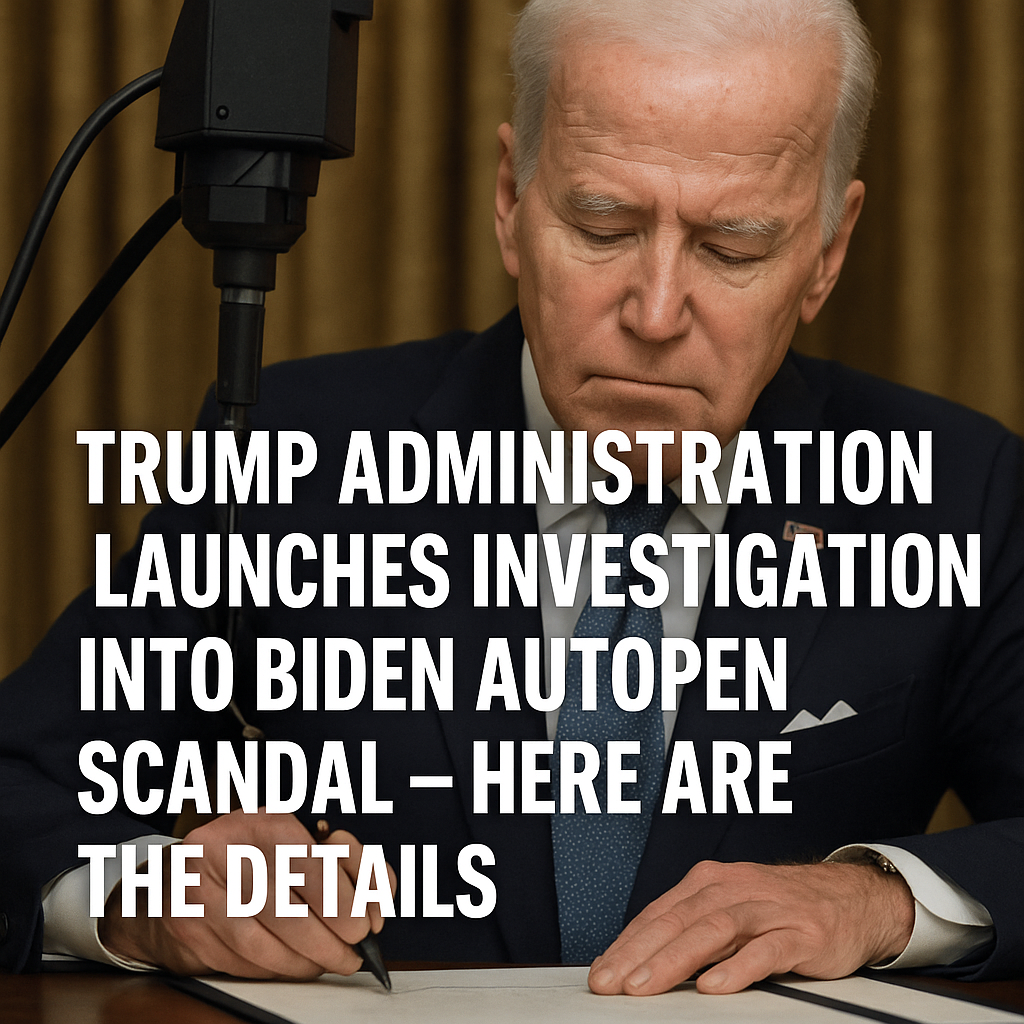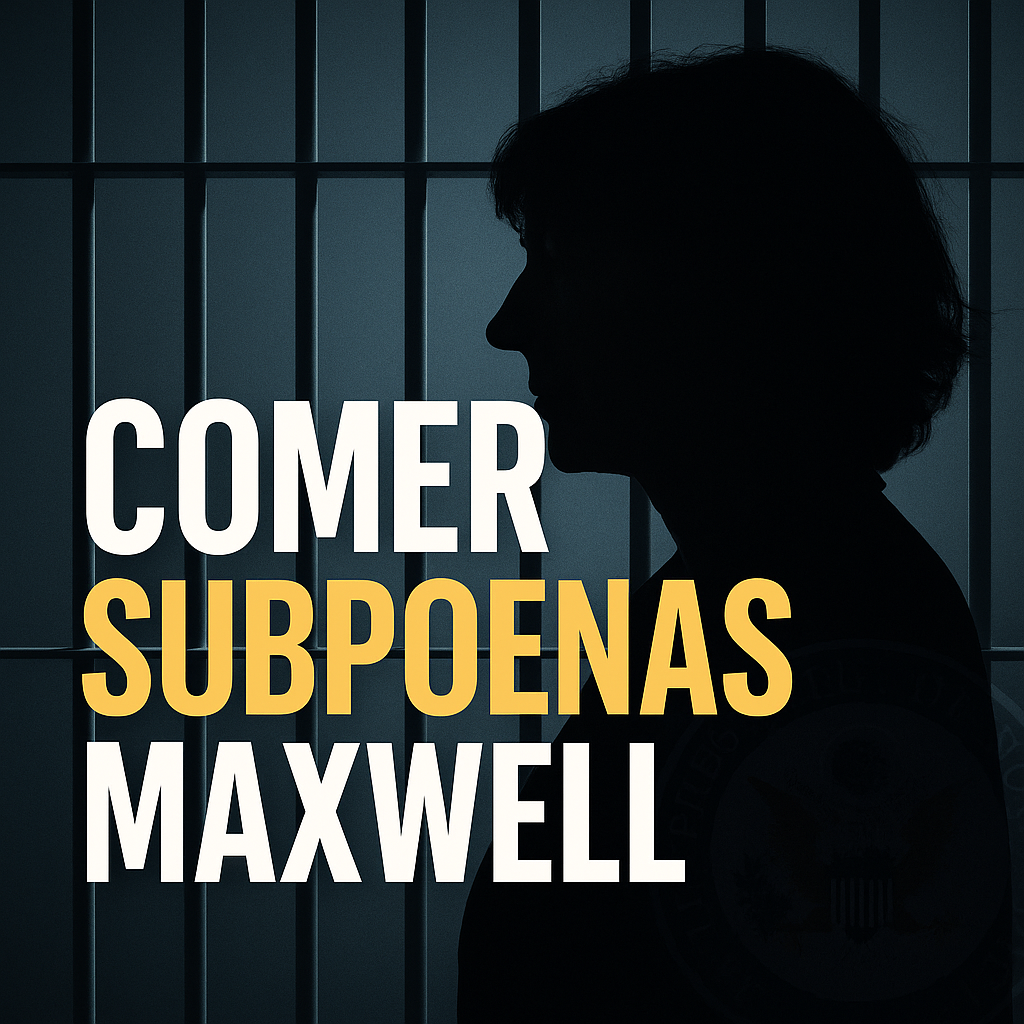Trump Administration Launches Investigation into Biden Autopen Scandal – Here Are the Details
In a move that has sent shockwaves through Washington, the Trump administration has officially launched a federal investigation into allegations that President Joe Biden improperly used an autopen to authorize controversial presidential pardons. The inquiry, led by Trump-appointed officials at the Department of Justice, is expected to scrutinize a series of high-profile clemency grants issued during Biden’s final months in office.
The probe, which began quietly but was confirmed Monday by sources within the DOJ, is focusing on whether the autopen was used to sign executive clemency orders without the direct oversight or legal presence of President Biden himself. Critics argue that such a practice, if proven to be widespread, would undermine the legal legitimacy of those pardons and call into question the integrity of the executive branch under Biden’s leadership.
A DOJ official told Reuters that the investigation will include a comprehensive review of the procedures used by the Biden White House in issuing at least 35 clemency orders, including several high-profile cases involving politically connected individuals. “We are looking into whether the legal requirements for personal presidential action were circumvented through the use of mechanical or delegated processes,” the official stated.
The use of autopen technology — a device capable of replicating a person’s signature — is not inherently illegal. However, it has been traditionally reserved for routine or ceremonial documents, not executive orders or legal decrees that carry weighty constitutional consequences. The concern here is not the machine itself, but the possibility that Biden did not personally authorize key pardons, potentially delegating that solemn constitutional duty to unelected staff or aides.
Conservative watchdog groups and constitutional scholars have raised red flags for months. The America First Legal Foundation issued a formal complaint earlier this year, citing “a pattern of administrative irregularities” and “disturbing signs of executive disengagement.” The foundation’s general counsel stated, “If a president is not personally signing pardons, then we are entering very dangerous constitutional territory.”
Adding fuel to the fire is the revelation that several of the pardoned individuals were linked to Democratic donors, activist organizations, and at least one foreign lobbying group. Among the most controversial cases is that of former energy consultant Paul Devenney, who received clemency despite being convicted of defrauding taxpayers through a Biden-era green energy initiative. Critics argue that this type of pardon, allegedly signed via autopen without Biden’s physical presence, raises serious ethical concerns.
The Trump administration’s move to investigate comes amid broader concerns about the legality of Biden’s final acts as president and questions surrounding his cognitive decline. Although mainstream outlets have largely downplayed the scandal, grassroots conservatives see the issue as emblematic of a broader pattern of lawlessness and executive overreach during Biden’s presidency.
A source close to President Trump described the investigation as “a necessary step toward restoring executive accountability.” The source added, “President Trump believes the pardon power is sacred. If it was abused by his predecessor, especially for political payback or to help cronies, the American people deserve to know.”
Democrats have predictably pushed back on the probe, calling it politically motivated. A spokesperson for the Biden Foundation dismissed the investigation as “a partisan fishing expedition.” However, even some left-leaning legal experts have conceded that the use of autopen for pardons is legally uncharted territory.
Republican lawmakers are preparing to back the investigation with hearings of their own. House Judiciary Committee Chairman Jim Jordan (R-OH) has already requested documents from the Biden Presidential Library and is expected to issue subpoenas if the National Archives fail to comply. “The American people have a right to know whether Joe Biden was signing away justice with the push of a button,” Jordan said.
From a conservative standpoint, the autopen scandal serves as a striking illustration of the disconnect between the media’s narrative and the seriousness of executive malfeasance. The same institutions that pounced on Trump for procedural technicalities now appear uninterested in potential constitutional violations by a Democrat president.
The core of the controversy revolves around presidential intent — a requirement for valid clemency under Article II of the Constitution. If Biden was unaware, uninvolved, or physically incapable of authorizing the pardons in question, any legal immunity for those individuals could be invalidated. Legal experts say that would open the door to a cascade of lawsuits and potentially re-prosecutions.
As the Trump Justice Department begins its review, there is speculation that it could widen into a broader inquiry into the use of proxy governance during the Biden years. Some insiders believe this could include Biden’s health records, White House visitor logs, and communications between top aides and lobbying firms.
This development signals a dramatic reversal of political momentum, as Biden-era officials find themselves under scrutiny for actions taken behind closed doors. For millions of Americans frustrated by what they view as a two-tier justice system, the investigation represents more than a procedural review — it is a potential turning point in the fight to reclaim constitutional transparency.
The Biden autopen controversy may appear technical on the surface, but its implications cut to the heart of presidential accountability. If this investigation confirms what whistleblowers and watchdog groups have alleged, the fallout could be both legal and political — and deeply damaging to the Biden legacy.






